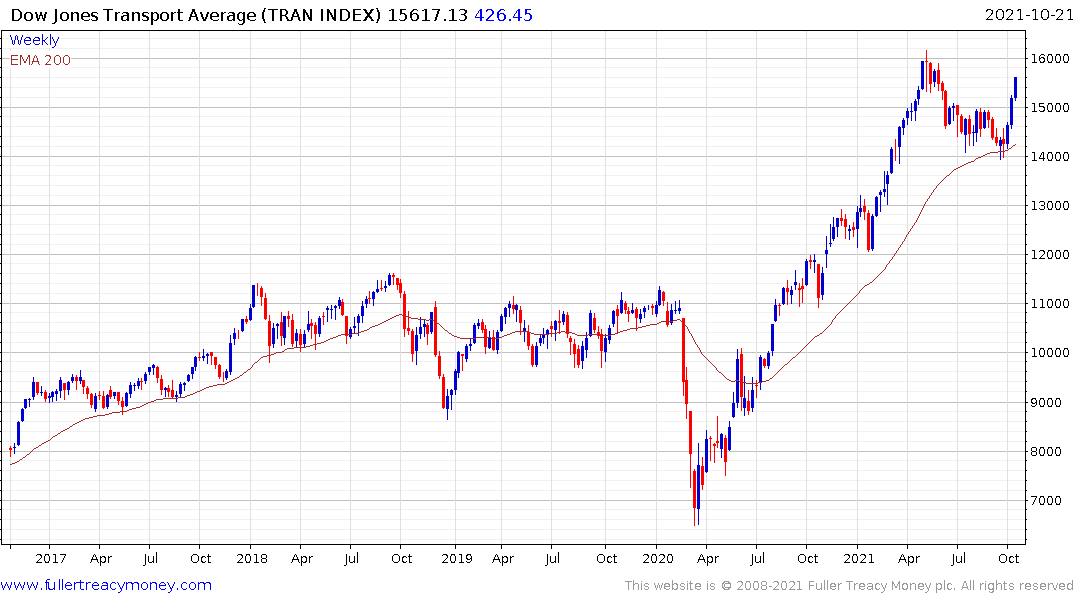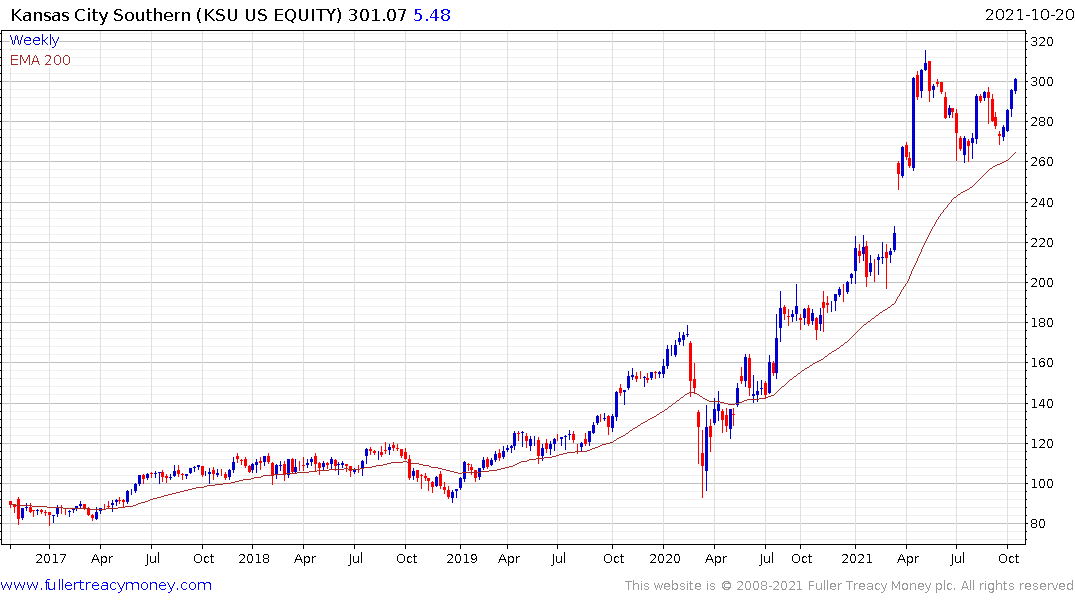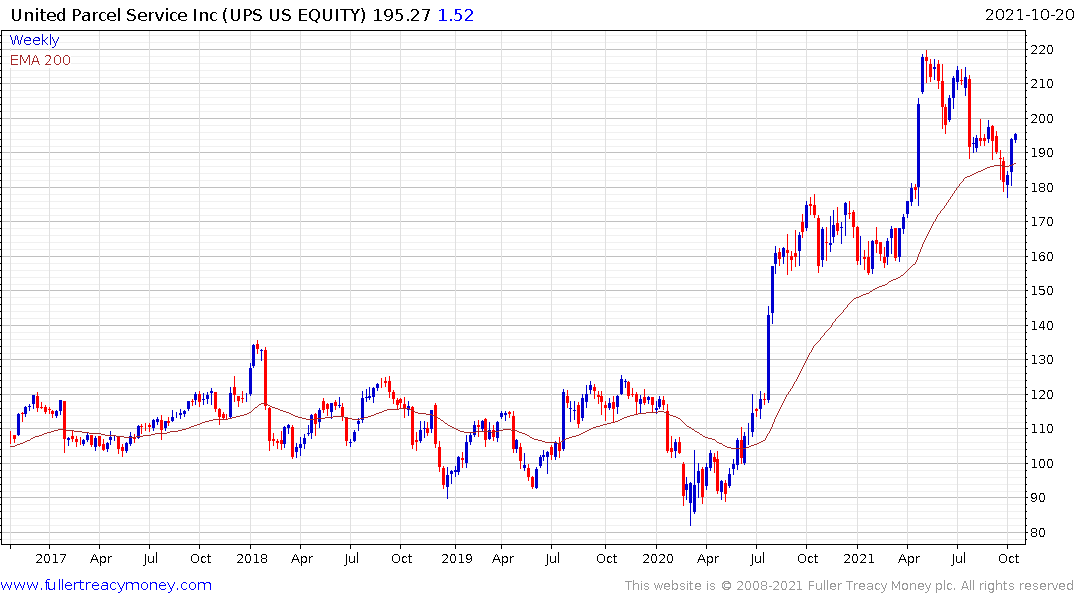West Coast ports to stay open 24/7 under U.S. plan to relieve supply chain issues
This article from Reuters may be of interest to subscribers. Here is a section:
The White House plan has the cooperation of the International Longshore and Warehouse Union, whose leaders and port officials were expected to meet with Biden's top officials on Wednesday. The ILWU says its members are willing to work extra shifts to ease the crisis.
Six companies are part of the plan -- Walmart, FedEx, UPS, Target, Home Depot and Samsung.
"Across these six companies over 3,500 additional containers per week will move at night through the end of the year," the White House said in a statement.
The administration said it's also trying to assist in a truck driver shortage by supporting state motor vehicle departments."In 2021, an average of 50,000 commercial drivers licenses and learner's permits have been issued each month, 60% higher than the 2020 numbers," a senior administration official said. "The supply chain is essentially in the hands of the private sector, so we need the private sector to up to help solve problems."
To say that the supply chain is in the hands of the private sector is a gross misrepresentation of the power unions hold over how speedily goods move through the most significant ports in the USA.
I have a number of friends who have intimate knowledge of how the LA/Long Beach ports function. During the pandemic, when one person on a shift got COVID, the entire shift was furloughed and no testing was required. That slowed everything down to a crawl and no effort was made to put on additional shifts.
This link from Ziprecruiter understates the average salaries available at major ports. The Pacific Maritime Association is a better resource since it represents the longshoremen. Here is a section from their website:
The longshore, clerks’ and foremen’s agreements recognize 15 holidays, of which 13 are “paid holidays.” Registrants who are eligible to receive a paid holiday benefit package receive pay equivalent to eight hours of work at a basic rate whether or not they work on the holiday. All registrants who are paid for work on one of the 13 “paid holidays” receive wages for the hours worked at the overtime rate.
A basic one-week or two-week vacation is paid based on qualifying hours worked by each eligible registrant in the previous payroll year, with up to four additional weeks paid based on qualifying years of service in the industry. Vacation payments are made in February and each week is paid at 40 times the registrant’s applicable straight time or appropriate skilled straight time hourly rate.
Set aside for the present the $183,000 basic salary of a full-time worker and think about the fact that these extremely well remunerated people have no incentive to speed up. If the Biden administration has successfully negotiated with this union to accelerate the throughput of cargo, it has come at a heavy cost. It is quite likely the companies mentioned above are the one’s who will be paying this additional fee for working at night and will pass that along to customers. That also implies their cargo will be the only containers to be processed at night which would do little to unclog the system. When Mrs. Treacy quizzed her logistics contacts in China this morning they were sceptical anything would change.

The Dow Transportation Average has rebounded impressively from the region of the trend mean over the last couple of weeks.


Kansas City Southern, Norfolk Southern and UPS share strong commonality with the Average.
 Avis Budget Group’s doubling in the last month is the standout performance for the sector. The share is clearly accelerating and the first downward dynamic is likely to mark a peak of medium-term significance.
Avis Budget Group’s doubling in the last month is the standout performance for the sector. The share is clearly accelerating and the first downward dynamic is likely to mark a peak of medium-term significance.


